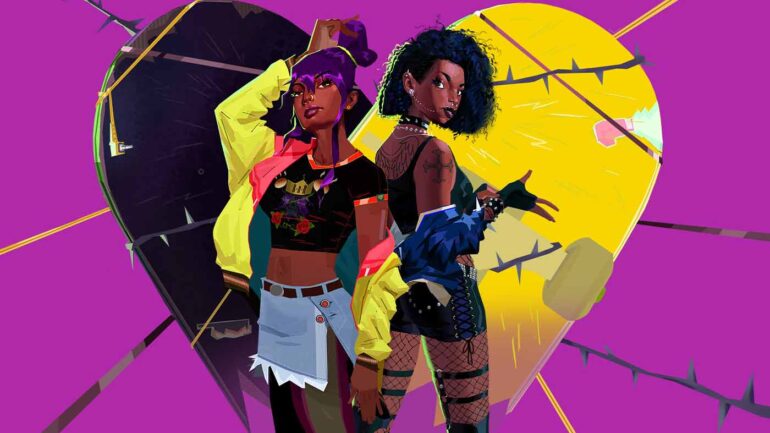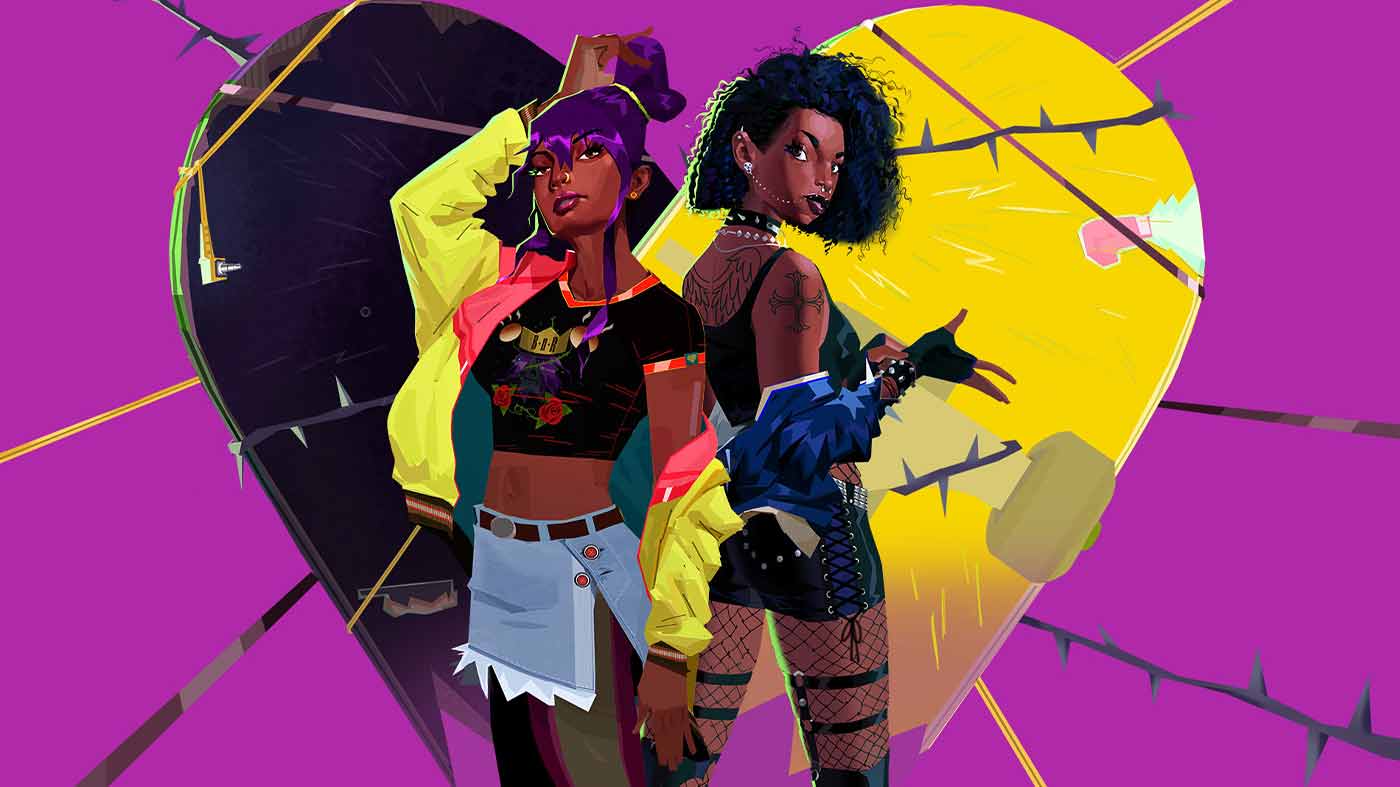Thirsty Suitors is interminably likeable. The pitch alone is enough to make you smile; a celebratory South Asian riff on Scott Pilgrim vs. the World that sees a millennial queer woman return to her hometown to make amends for a rather dramatic split from family, friends, and lovers back in her early twenties. In her absence, Jala (Farah Merani) has developed something of a complex, manifesting her older sister as her internal monologue, and the player’s third wall breaking guide, as well as a string of romantic insecurities and avoidance tactics. Typical burnout millennial shit, basically.
Only in Thirsty Suitors, everything is dialled up to eleven, every trauma point, conversation, and action translated through the game’s hyper-stylised energy. Practically speaking this means getting around town is handled by a skating mini-game, cooking with your mum by quick-time events, and confrontations with your cabal of exes as turn-based RPG clashes.
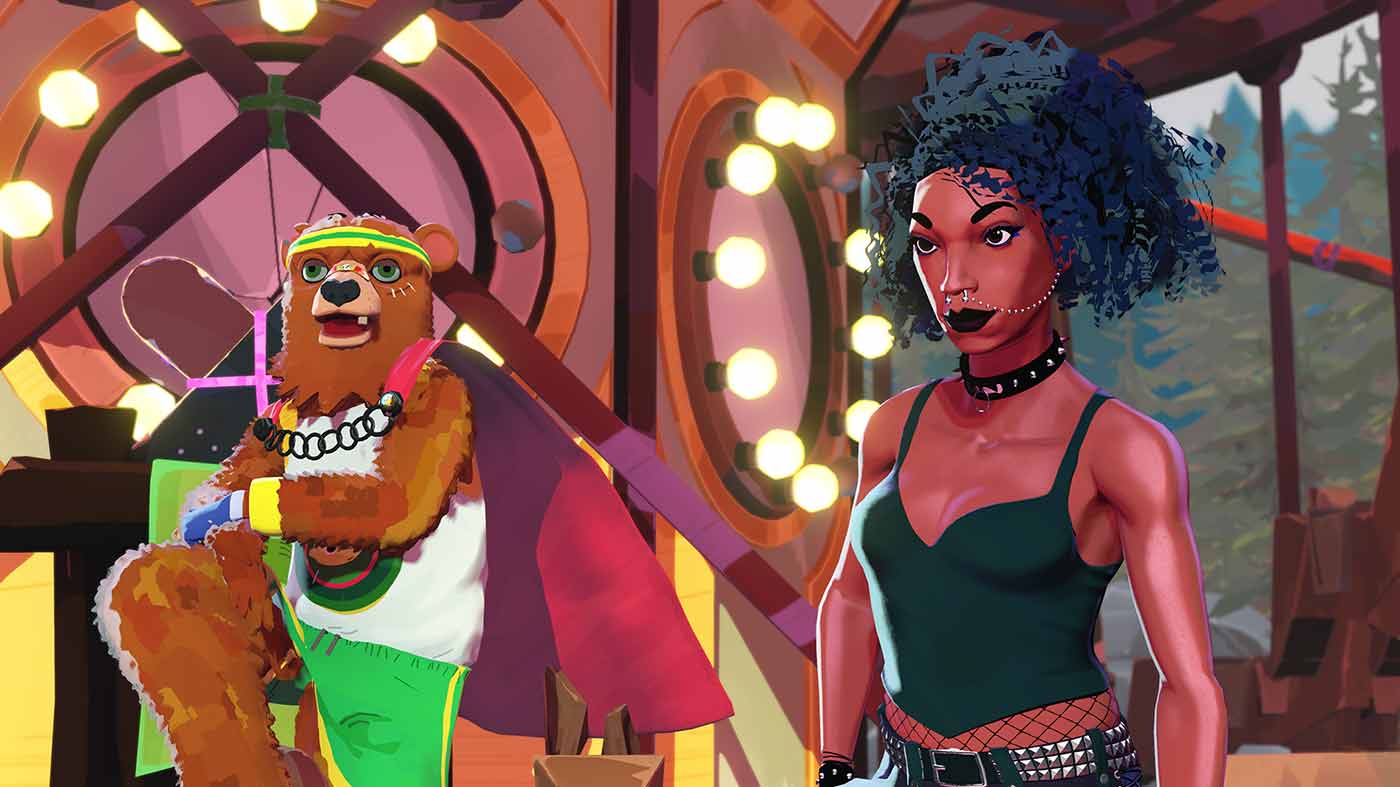
It’s ambitious, sharply drawn in both art direction and character, clumsy in execution, but always deeply, deeply likeable. You’re thrown into the game’s vibe immediately, Jala avoiding thinking about her collision course with home by completing a Dolly magazine-adjacent dating profile quiz. As you become accustomed to the skating, a fairly basic system that allows for some jumps and light trick work, you’ll be grilled by your mind sister about the kind of person you are inside a relationship, your choices here allocating points into one of the three “classes” Jala can play as. Thankfully Thirsty Suitors approach to this RPG staple is as fluid as its understanding of sexuality and gender, meaning you’re always free to change up how you play, distributing points between stats like health, focus points, and attack and defence.
This personality-driven class system spills over into Thirsty Suitors’ two primary forms of combat; emotionally charged conversations and literal turn-based battles, often at the same time. Turns out leaving a thoroughly burnt bridge on your way out of town makes coming home a rough river crossing, every corner of your once-comfortable quaint Americana home a possible battleground. The game presents you with a small map that allows you to warp between major locations, each one an explorable open environment that usually makes use of Jala’s skateboard and plays host to several potential conflicts. The plot features a handful of large-scale battles, complete with extravagant set dressing and specialised boss moves, while your lovingly meddling grandmother has dispatched an army of potential suitors who can also engage Jala in combat.
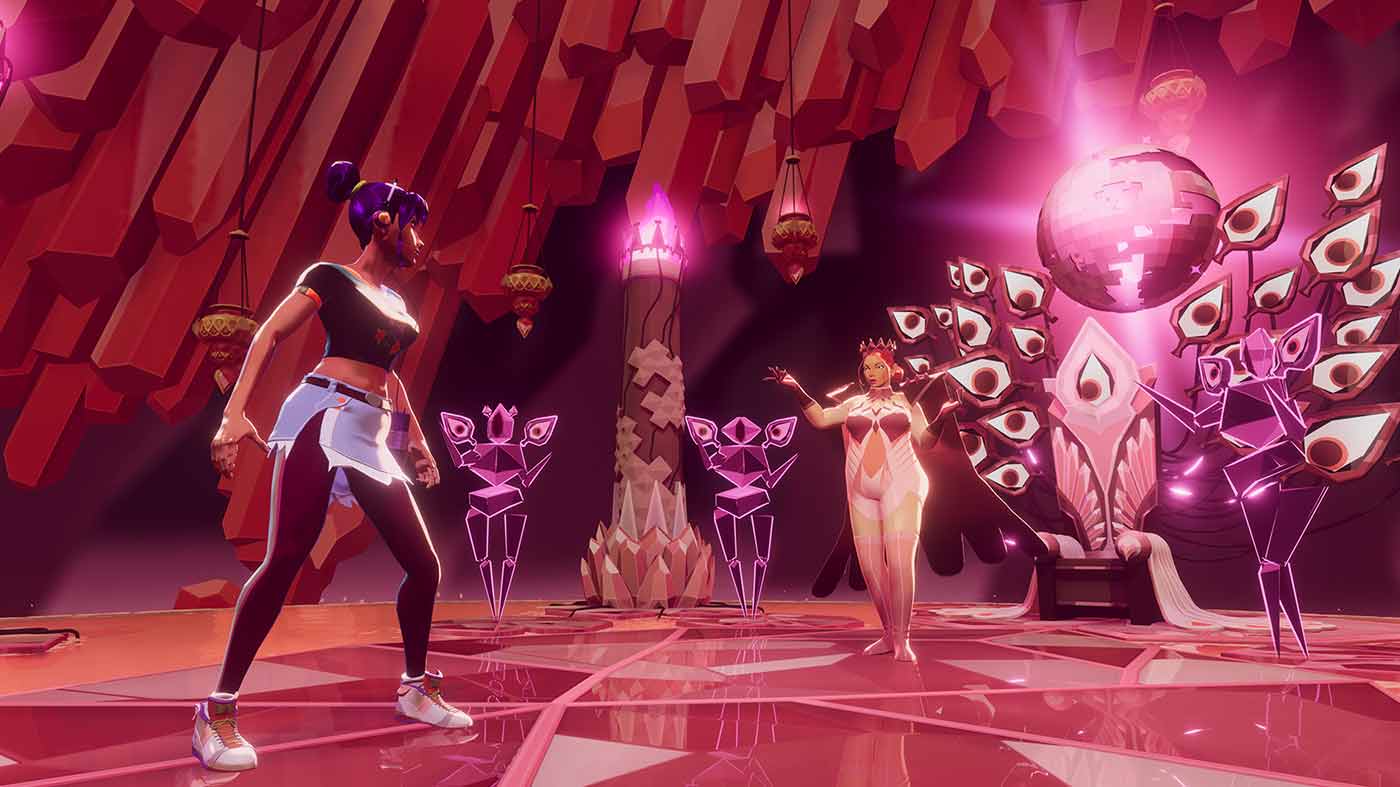
Both of Thirsty Suitors primary systems are thematically rich but equally lacking in some way. Turn-based combat is breezy to a fault, deploying several quality-of-life changes and always making impeccable use of the world (summoning your mum to smack someone giving you lip is a delight), but the baseline systems rarely register above fine. Jala can taunt opponents with emotion-specific options that in turn open up vulnerabilities, like running into a particularly needy ex and flirting to lower defences, but beyond this fights quickly become basic attack looping, punctuated by the game’s odd quick-time events. Likewise, skating feels strangely akin to The Simpsons: Hit & Run, or a similar PS2-era control experience, arcadey in the right ways but unwieldy in others.
Nothing in Thirsty Suitor’s toolbox is ever overtly problematic to the experience holistically but a coalition of “fine” does begin to weigh down a game that otherwise soars. Jala’s active attempts to better herself and make amends for the damage she caused in her youth is genuinely one of the most compelling and entertaining video game narratives I’ve played all year. It’s a layered approach that blends fantastic character writing, overt representation of a typically unseen culture in games, proud queerness and just outright fun. I laughed out loud more times than I can count, the game’s understanding of internet humour and culturally specific but universally human emotional truths lending it a contemporary edge and an earnest heart.
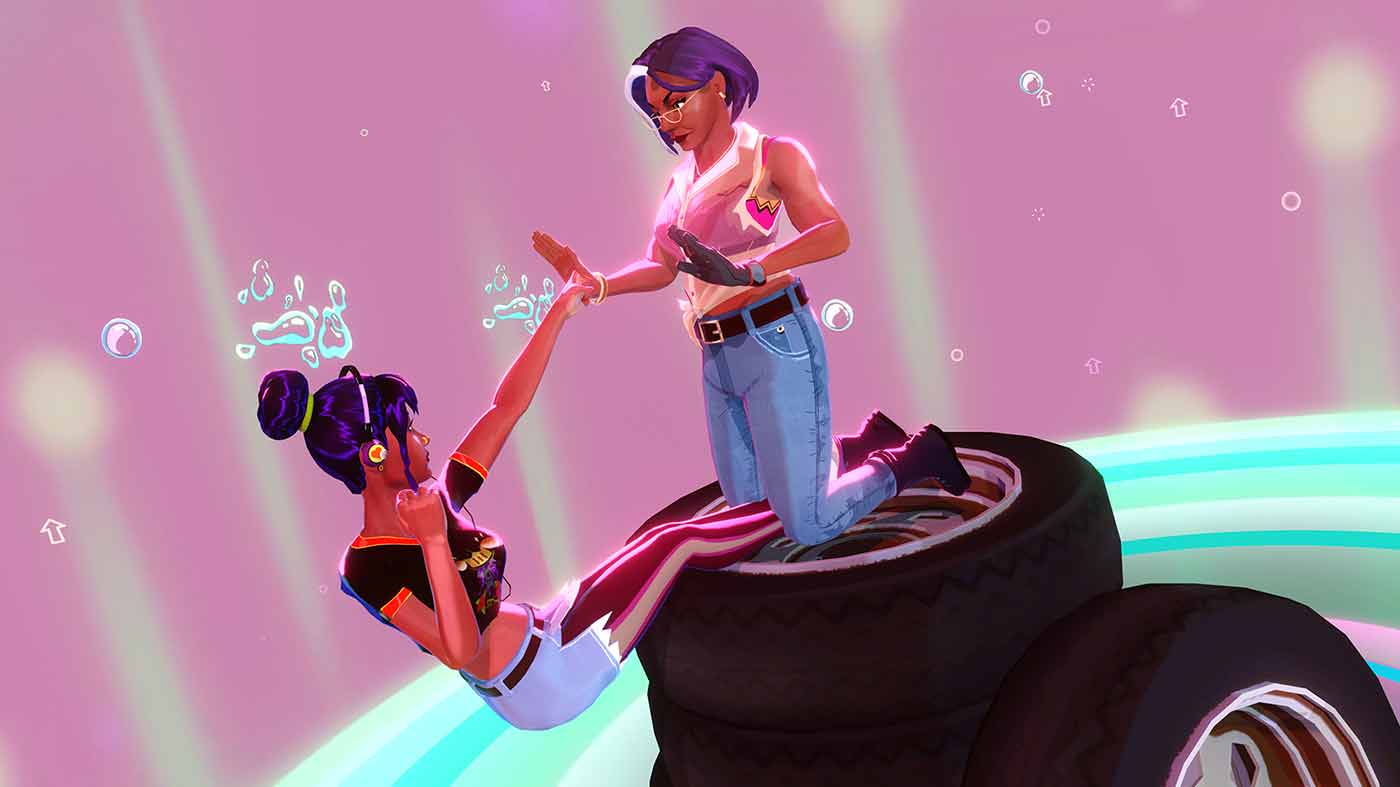
Homebase for Jala’s conquest is, well, home. Crashing back in her childhood bedroom, Jala begins and ends each in-game day with her parents, two standout performances and characters who veer archetypal but connect all the same. Jala’s South Asian culture permeates the game, informing its social politics and aesthetics, best exemplified by spending time in the kitchen with her folks. Meals are a language unto themselves in Thirsty Suitors, cooked as favours for friends, bonding exercises with family, and of course, mechanical benefit during combat. These segments rely heavily on quick-time events that feel slightly off thanks to some input timing confusion, but are elevated by expressive animation work and sincere character moments. As an explosion of colourful, delicious meals I’ve quickly added to my recipe tab play out, Jala and her parents reconnect, the familial art of cooking finally repairing that bridge.
Likewise, combat is almost always a smokescreen (and largely successful metaphor) for the real meat of Thirsty Suitors – people finally talking to each other. Jala is a flawed person, someone who spent years inadvertently hurting those around her through a perfect storm of youthful ignorance, cultural pressures, and outright selfishness. In her wake is a town filled with pain, and while the Scott Pilgrim framing of exes is initially fun, it quickly gives way to a far better story about coming to terms with the pain you’ve caused others and the kinder tomorrow you might be able to reach together. I can’t overstate how much I adored this turn, several times I wished combat could just fall away and allow me to simply choose dialogue options and watch as this charming and diverse cast of characters came to terms with each other as adults.
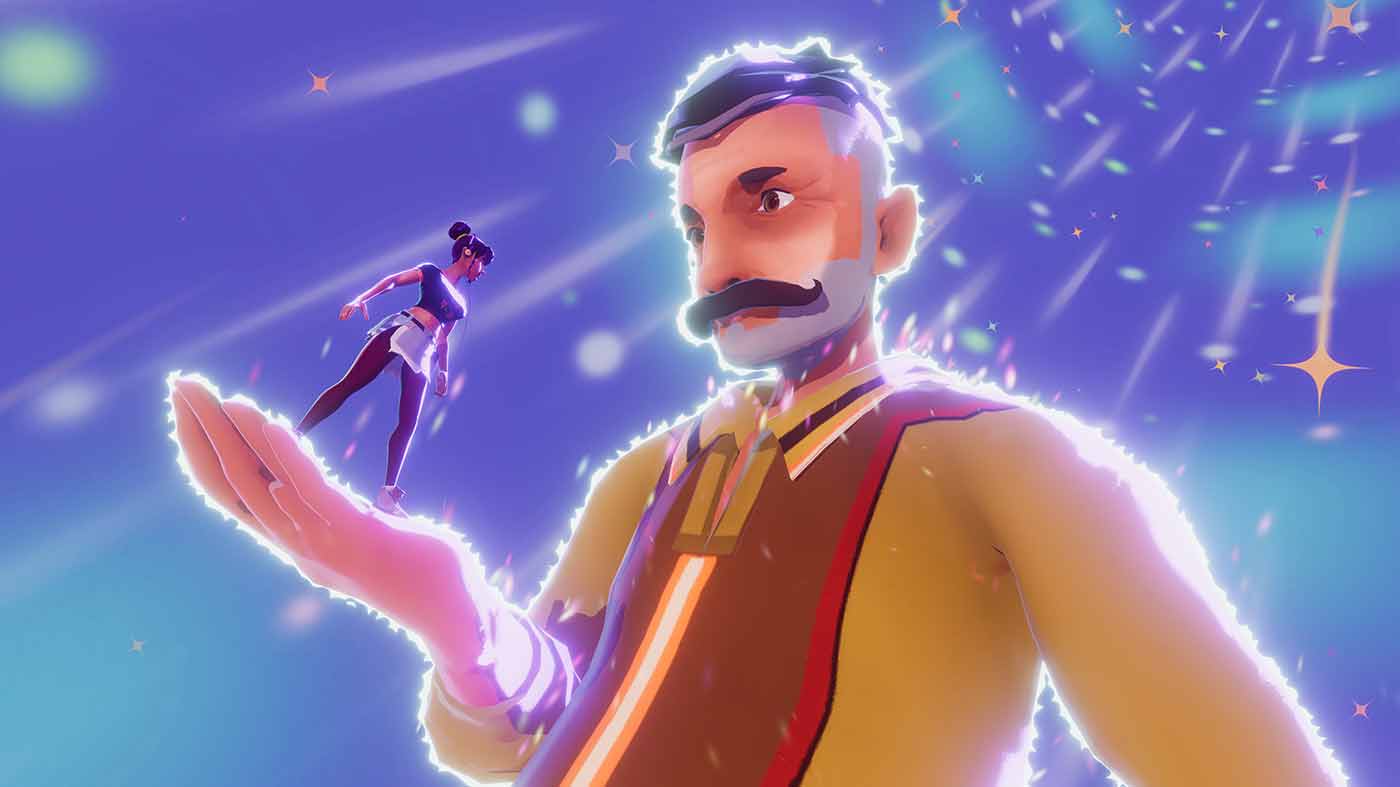
There are a handful of other systems at play in Thirsty Suitors, ranging from cute (you can get cool new jackets and shoes to wear) to vaguely complimentary (defeating an ex will give you a phone keychain that offers combat bonuses) to superfluous (there’s a quest log of sorts). Like much of the core gameplay, these are all resoundingly fine but stop short of engaging, small pit stops along the way to the next emotionally resonate story beat or considered character exchange. There’s evident ambition in this medley and the thematic connection these systems have to the story is well-reasoned, but I don’t come away from Thirsty Suitors fondly recalling its moment-to-moment.
Instead, I’m completely smitten by Jala’s journey to adulthood, the joyful and studious expressions of culture, purpose, sexuality and gender, the hyper-stylised and saturated art direction. The list goes on, Thirsty Suitors has heart, it has soul and maturity that is sorely lacking in this space and is a stellar example of why diversity on and behind the screen matters so much to the forward momentum of the medium. All things considered, Outerloop Games is still relatively fresh-faced and with time, its mechanical leanings and goals will be better realised. But that gawky eagerness only serves to highlight that Thirsty Suitors best moments feel like finally growing up.


